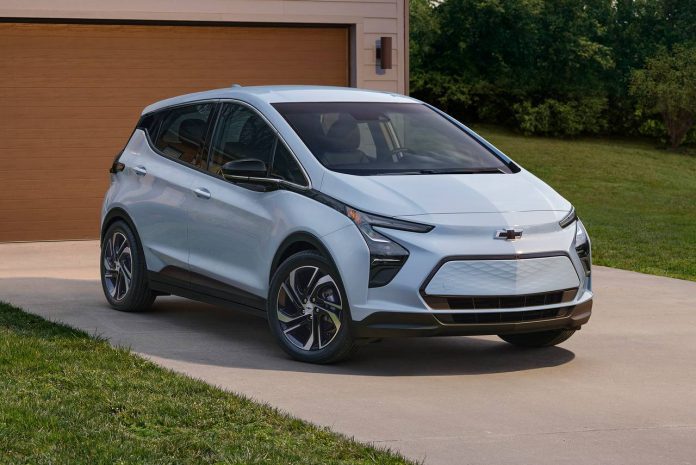General Motors CEO, Mary Barra, has hinted that a third-generation Chevrolet Bolt could be in the works, despite a previous announcement that production would end later this year.
During a recent interview on NPR’s Marketplace podcast, Barra clarified that the decision to end Chevy Bolt production before 2024 was due to its now-outdated “second-generation technology.” The car manufacturer has stayed focused on implementing its new Ultium platform, founded in partnership with LG Energy Solution, across its electric vehicle lineup, a move the CEO claimed would reduce battery costs by 40%. Although the GM chief declined to say outright whether an Ultium-based Bolt would arrive, she noted that the car manufacturer would push the new EV architecture through its most-popular models. The Bolt, she added, is an “important vehicle in our portfolio,” which has “built up a lot of loyalty and equity.”
The Chevy Bolt, with its satisfactory driving range and relatively low price, is considered one of the most budget-friendly products in the U.S. EV market. However, an iteration using the Ultium platform would offer more than technological updates. The cheaper Ultium battery would drive its already-affordable price down even more while still offering faster charging, increased driving range and all-wheel-drive options.
But, while Barra’s statements imply the arrival of an Ultium Chevy Bolt is on the horizon, car manufacturers still tend to lose money on cheaper battery-powered models in the U.S. Despite its popularity, the soon-to-be-canceled vehicle failed to turn a profit for the company. Although high prices are a significant obstacle to EV adoption, automakers have found themselves playing a balancing game between profitability and affordability. Therefore, it may take quite some time for the technology to become truly cost-effective, meaning GM could sit on a third-generation version until the market becomes less hostile to budget-friendly models.



